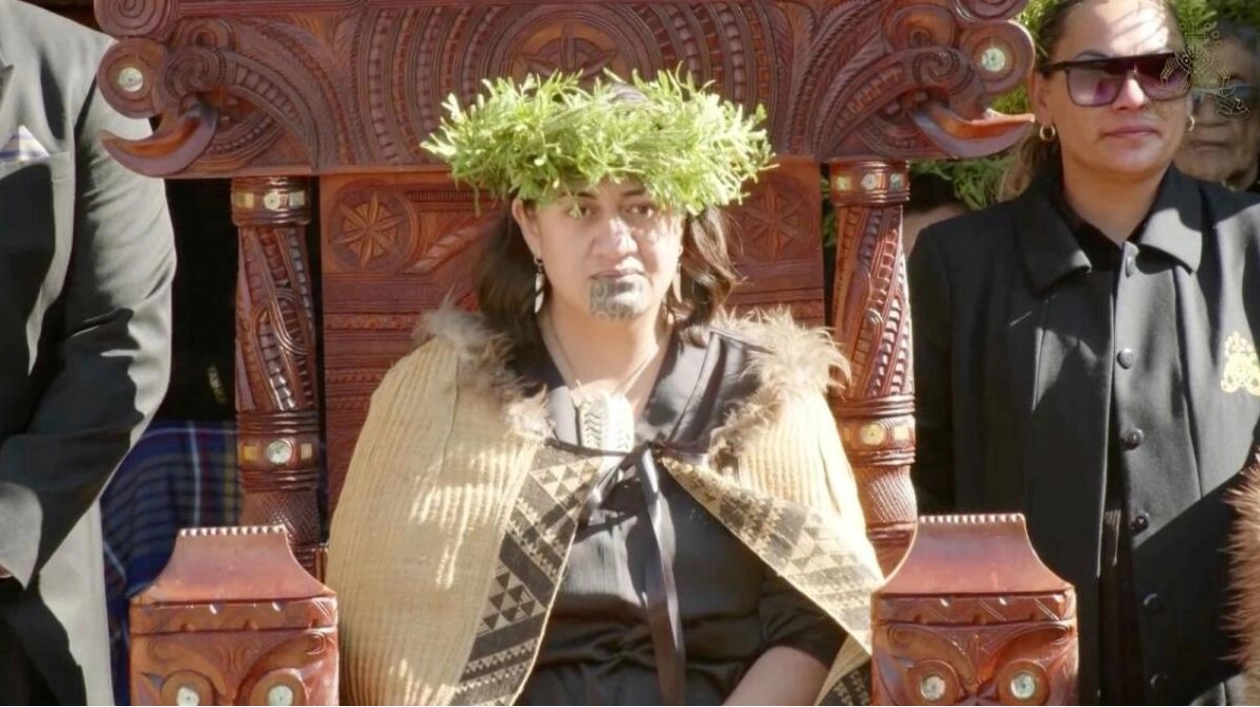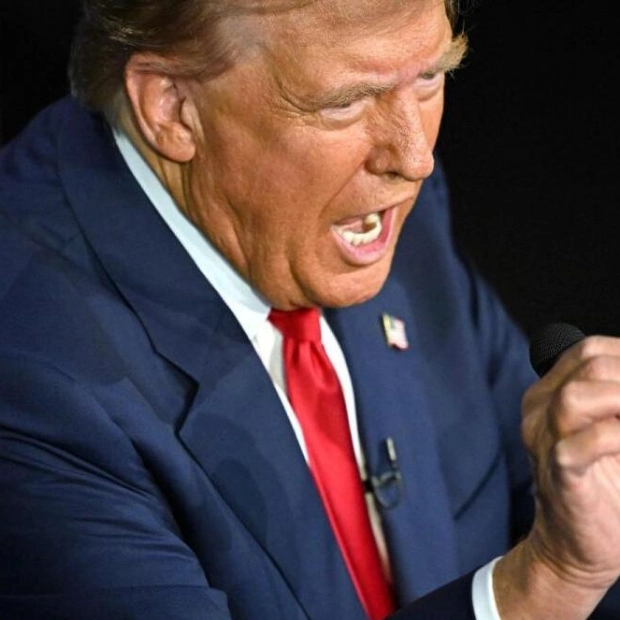New Zealand's Maori chiefs have crowned a 27-year-old queen as their new monarch, a surprising selection celebrated as a symbol of transformation for the country's Indigenous community. Nga Wai hono i te po Paki was greeted with cheers from thousands as she ascended a high-backed wooden throne during a grand ceremony on the North Island. She is the youngest daughter of King Tuheitia Pootatau Te Wherowhero VII, who passed away last Friday following heart surgery.
After being chosen by a council of chiefs, Nga Wai was led to the throne by a group of bare-chested, tattooed men carrying ceremonial weapons, who chanted, screamed, and shouted in approval. The queen, adorned with a wreath of leaves, a cloak, and a whalebone necklace, sat beside her father's coffin as emotional rites, prayers, and chants were performed. Following six days in state, the late king was transported down the Waikato River as part of a flotilla of four war canoes, each propelled by more than a dozen rowers. His funeral procession passed crowds of onlookers gathered on the riverbanks before stopping at the base of sacred Mount Taupiri.
From there, three rugby teams served as pallbearers, guiding his coffin up steep slopes to the summit, which is the final resting place of Maori royals. The Maori monarch holds a largely ceremonial role without legal status, but it carries immense cultural, and occasionally political, significance as a powerful symbol of identity and kinship. As the king's only daughter and his youngest child, Queen Nga Wai was seen as an unconventional choice to succeed him. One of her two elder brothers had assumed many ceremonial duties during their father's bouts of ill health and was widely expected to take over.
"It is certainly a departure from traditional Maori leadership appointments, which typically pass to the eldest child, usually a male," said Maori cultural advisor Karaitiana Taiuru. Taiuru described it as a "privilege" to witness a young Maori woman ascend to the throne, especially given the aging leadership and growing challenges faced by the community. "The Maori world has been longing for younger leadership to guide us through the new era of AI, genetic modification, global warming, and other social changes that challenge and threaten us and the Indigenous Peoples of New Zealand," he said. "These challenges demand a new and younger generation to lead us."
New Zealand's Maori population comprises approximately 17 percent of the total, or about 900,000 people. Maori citizens are more likely than other New Zealanders to be unemployed, live in poverty, or suffer from cancer, cardiovascular disease, diabetes, and higher suicide rates. Maori life expectancy is seven years shorter than that of other New Zealanders. The Kiingitanga, or Maori King movement, was established in 1858 to unite New Zealand's tribes and provide a single counterpart to the colonial ruler, Britain's Queen Victoria.
"People think Maori people are one nation — we're not. We're many tribes, many iwi. We have different ways of speaking out," said Joanne Teina, who traveled from Auckland for the ceremony. "The Kiingitanga was created to foster unity — among people who were fighting each other for thousands of years before the Pakeha (Europeans) arrived." Queen Nga Wai is the eighth Maori monarch and the second queen. Her grandmother, Queen Te Arikinui Dame Te Atairangikaahu, held the position for four decades until 2006. The new queen studied the Maori language and customary law at New Zealand's Waikato University and also taught 'kapa haka' performing arts to children.
To commemorate the anniversary of the king's coronation in 2016, she received a traditional Maori 'moko' tattoo on her chin. King Tuheitia, a 69-year-old former truck driver turned royal, passed away last Friday, just days after heart surgery and celebrations marking the 18th anniversary of his coronation. Tens of thousands of Indigenous citizens and 'Pakeha' — those of European ancestry — visited to pay their respects, mourn, and celebrate New Zealand's rich Maori heritage. Among them was Auckland-based Darrio Penetito-Hemara, who told AFP the king had united "many people across Aotearoa (New Zealand) who don't often see eye-to-eye." The king leaves a legacy forged "through respect, through aroha (love)," Penetito-Hemara said.
New Zealand's Prime Minister Christopher Luxon welcomed Queen Nga Wai in a statement, saying she "carries forward the mantle of leadership left by her father." "The path ahead is illuminated by the great legacy of Kiingi Tuheitia," he said.






